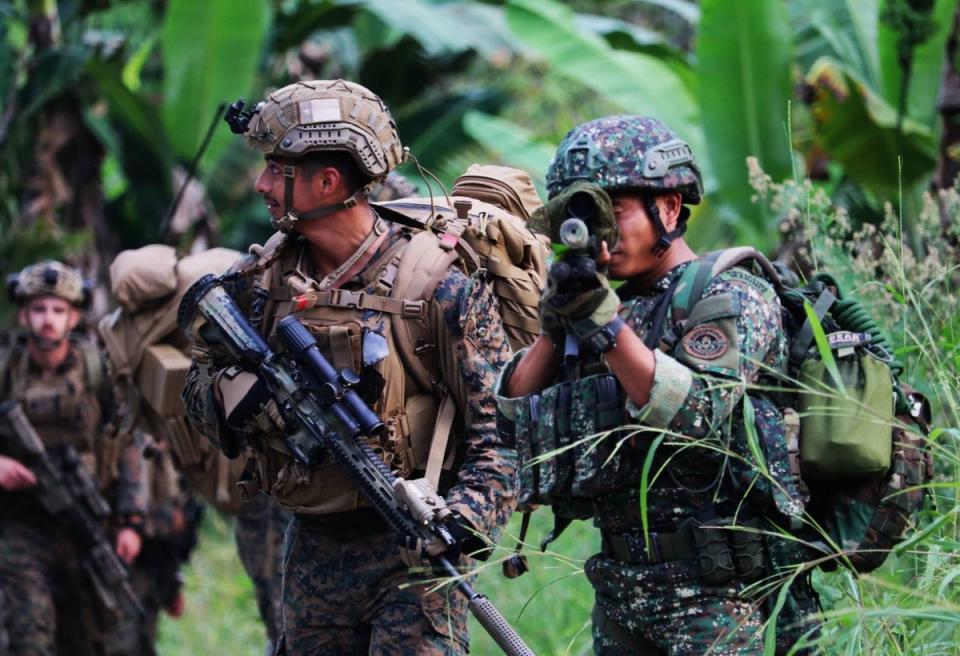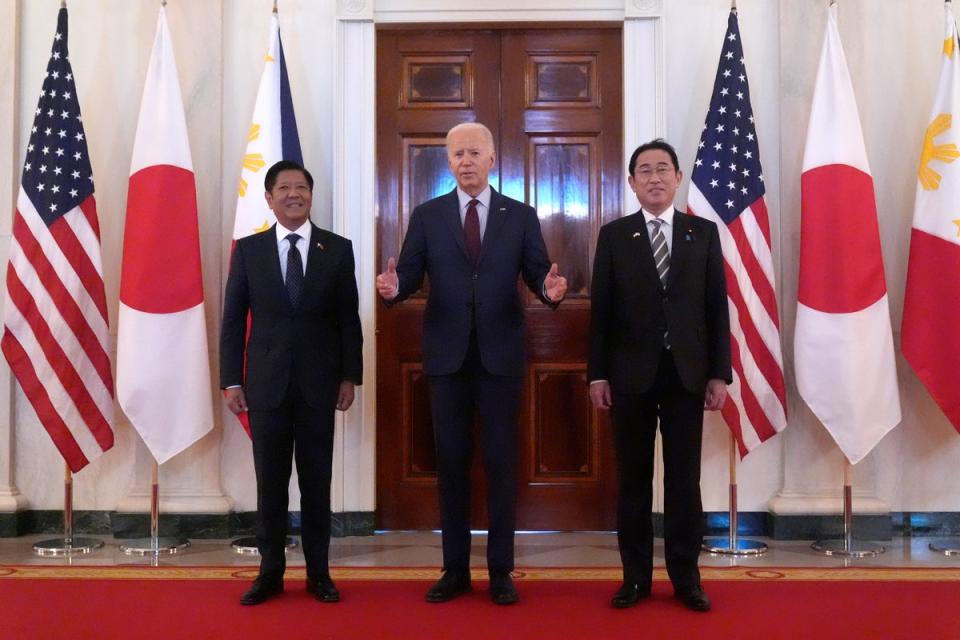China sounds alarm after Philippines and US announce ‘mega drills’ involving 16000 soldiers
The Philippines and the US will conduct their first-ever military exercises outside Southeast Asian country’s territorial waters in the South China Sea, sparking condemnation from China.
The joint military drill, involving 16,700 American and Filipino soldiers, will stimulate exercises of sinking a target ship, retaking an island and sailing in waters that have remained a flashpoint between China and countries like the Philippines and Taiwan.
The annual Balikatan drill – that translates to “shoulder-to-shoulder” from Filipino – will begin on 22 April and continue till 10 May.
“It will be the first time the mega drills are being carried out beyond Philippine territorial waters," said Michael Logico, a Philippine army colonel overseeing the exercises.
This also marks the inaugural participation of the Philippine Coast Guard in military exercises. The coast guard has been increasingly involved in confrontations with China, notably in areas like the disputed Second Thomas Shoal.
Issuing a warning against holding the drills, China’s Foreign Ministry said that the involvement of extra-territorial countries to show off their force in the South China Sea will only provoke confrontation and undermine regional stability.
"Attempts to bring in external forces to safeguard its so-called security will only lead to greater insecurity for itself," ministry spokesperson Lin Jian said at a regular news conference, urging both countries to stop provocation.
He said Manila should be "sober enough to realise" the consequences.

Mr Logico said US troops and their Manila counterparts will simulate retaking islands occupied by hostile forces in the northernmost islands of the country, close to Taiwan and in the western Palawan province facing the South China Sea.
For the first time since the inception of the annual exercise in 1991, a small French contingent will participate in this year’s drills. They will deploy a frigate that will sail alongside Philippine and US naval vessels in Manila’s exclusive economic zone in the South China Sea.
Around 14 nations will join as observers, including Japan, India and countries in Asean and the European Union, Mr Logico said.
The Philippines on Thursday defended its decision to strengthen ties with the US and Japan as the countries following a trilateral summit that drew flak from China.
The Philippine Foreign Ministry has called it a “sovereign choice" as the trilateral grouping would promote peace and economic growth in the Indo-Pacific. China should not be threatened by it, a statement said.

"The source of tension in our region is well known to all. China should reflect upon its own actions in the South China Sea," the ministry said.
“It is China’s excessive maritime claims and aggressive behaviour, including its militarisation of reclaimed features, that are undermining regional peace and stability and raising tensions.”
US president Joe Biden hosted Philippine President Ferdinand Marcos Jr and Japanese prime minister Fumio Kishida in Washington last week where the three leaders jointly expressed their "serious concerns" over China’s actions in the South China Sea.
The Chinese Foreign Ministry had opposed the summit saying it opposes "forming exclusive circles in the region" and any "acts that stoke and drive up tensions".
Ties between Manila and Beijing have torpedoed to worse in recent years maritime run-ins in disputed atolls and shoals in the South China Sea that had led to injuries to Filipino coast guards.
China has been accused of using “gray-zone” harassment tactics such as shining military-grade lasers, the firing of water cannons and ramming into vessels, escalating tensions.
Additional reporting by agencies

